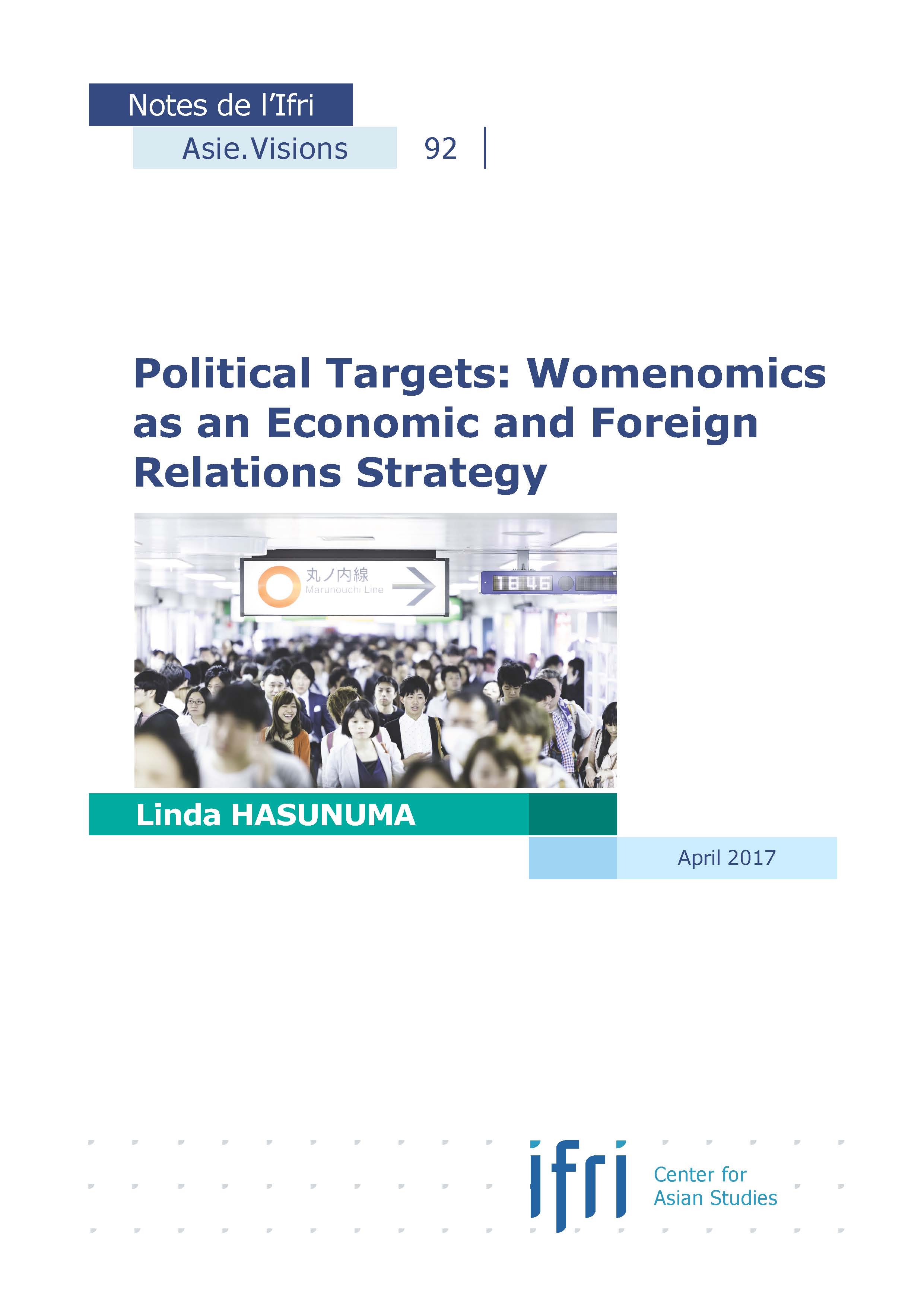Political Targets: Womenomics as an Economic and Foreign Relations Strategy

This paper provides an overview of the womenomics strategy launched by Japan Prime Minister Shinzo Abe, and shows how a plan designed to mitigate Japan’s demographic crises and labor shortages also evolved into a foreign relations strategy to help manage Japan’s reputation abroad on gender equality.

Four years have passed since Prime Minister Abe launched his Three Arrows of reform – “Abenomics” – to revitalize Japan’s economy. The first arrow targeted monetary policy; the second fiscal policy, and the third structural reform – including a measure aimed at reducing barriers to women’s participation in the labor force; this part quickly became known in the media as “womenomics”.
Demographic and economic pressures make it imperative for the Japanese government to employ more women as its population ages and shrinks, but Japan has been under great international pressure over its disappointing record on women’s equality as well. What began as an economic strategy about women became also a foreign relations strategy that could help the Japanese government reframe the narrative and its reputation as a country that fails its women; it has also faced increasing criticism and even condemnation from human and women’s rights activists and organizations for its position on the Comfort Women issue. Womenomics is also a public relations strategy for the government to signal to other countries, financial and international institutions, investors and rights organizations, that it is taking action on two important fronts: economic reforms and gender equality. The inclusion of women can provide economic and political benefits to Japan.
Although the government has missed many of its intended targets, womenomics has made an impact, and helped to center Japanese women on the national and international stage. It may not have produced substantive changes over four years, but it will undoubtedly be an important part of Shinzo Abe’s legacy as prime minister. To stay on course, Japan must make womenomics a long-term strategy – one that does not lose momentum when Abe leaves office.
Download the full analysis
This page contains only a summary of our work. If you would like to have access to all the information from our research on the subject, you can download the full version in PDF format.
Political Targets: Womenomics as an Economic and Foreign Relations Strategy
Related centers and programs
Discover our other research centers and programsFind out more
Discover all our analyses
RAMSES 2024. A World to Be Remade
For its 42nd edition, RAMSES 2024 identifies three major challenges for 2024.
France and the Philippines should anchor their maritime partnership
With shared interests in promoting international law and sustainable development, France and the Philippines should strengthen their maritime cooperation in the Indo-Pacific. Through bilateral agreements, expanded joint exercises and the exchange of best practices, both nations can enhance maritime domain awareness, counter security threats and develop blue economy initiatives. This deeper collaboration would reinforce stability and environmental stewardship across the region.

The China-led AIIB, a geopolitical tool?
The establishment of the Asian Infrastructure Investment Bank (AIIB) in 2016, on a Chinese initiative, constituted an attempt to bridge the gap in infrastructure financing in Asia. However, it was also perceived in the West as a potential vehicle for China’s geostrategic agendas, fueling the suspicion that the institution might compete rather than align with existing multilateral development banks (MDBs) and impose its own standards.
Jammu and Kashmir in the Aftermath of August 2019
The abrogation of Article 370, which granted special status to the state of Jammu and Kashmir (J&K), has been on the agenda of the Bharatiya Janata Party (BJP) for many decades.






